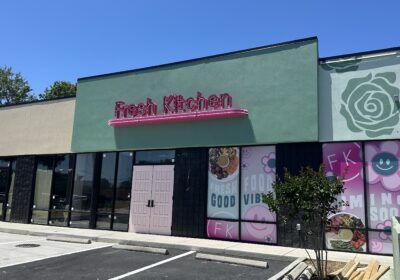Council being created to build relations between SG and student organizations
 Student Government’s (SG) newly created Council of Presidents (COP), which is a temporary group made of student organization heads, will be created into a bill and made permanent if there’s positive feedback from its members, according to Shaquille Kent, USF’s student body vice president.
Student Government’s (SG) newly created Council of Presidents (COP), which is a temporary group made of student organization heads, will be created into a bill and made permanent if there’s positive feedback from its members, according to Shaquille Kent, USF’s student body vice president.
The COP will conduct its first meeting in mid-November to serve as an introductory forum. Kent said the purpose of the cost-free initiative is for student organization leaders to voice their concerns and ideas, as well as for SG leaders to let student organization presidents more efficiently know the actions it plans on taking.
However, the initiative is encountering challenges along the way.
One concern is having a large enough location to accommodate the extensive amount of student organizations, according to Kent.
According to the Office of Multicultural Affairs website, there are over 600 registered student organizations.
Prospectively, the COP would meet starting spring 2019, three times a semester, Kent said.
In order to include every president, Kent would have to separate the organizations based on interest groups over the course of three days for each meeting. Kent categorically divided the groups based on cultural and professional standings. The third group is yet to be decided.
The meetings would include 100 to 200 student leaders per meeting in order accommodate to the size. Kent said the Marshall Student Center (MSC) Oval Theatre is an option, but to have a more intimate discussion he said he would consider the Senate Chambers since SG already has reservations for the room.
Out of the nearly 600 student organizations, 300 are funded by SG, according to Kent. He said the organizations that are funded and frequently request to book rooms have established relationships with SG. The purpose of the COP is to engage with organizations that are not actively communicating with SG to give everyone a platform to voice their opinions.
“What may be affecting a cultural organization might also be affecting a professional organization,” Kent said. “We want to know the desires of what people want to see on campus and get an assortment of opinions from those leaders.”
Kent said he would prefer to have the presidents and vice presidents attend the meetings. If leaders are unable to attend, he said the organization can delegate another member.
As chair of the council, Kent said he is acquiring help to organize the committee from Lyncee Romelus, the SG director of diversity, inclusion and sustainability who would serve as the vice chair. According to Kent, the initiative would be a part of SG by January, if the student organization leaders think it is beneficial.
Kent said he started working on the initiative by accumulating the names of student leaders from the Center for Leadership and Civic Engagement to send invitations for the first meeting. He said the SG marketing team is working on graphics to advertise the initiative on social media.
Based on the feedback from the first meeting in November, Kent said he will evaluate if this is something that can be solidified.
“I don’t want to impose something on these clubs if this is not something they think will be beneficial for the student body,” Kent said.
Kent said this is an important initiative for the executive branch because of the loss of personal connections due to busy schedules. The COP could operate as a committee without having to pass through the Senate, but to make it a permanent part of SG year-to-year, Kent would have to create a bill.
Kent said the COP would alleviate students relaying concerns to the Student Body President Moneer Kheireddine and himself through social media. Kent said if the initiative is permanent, it will be easier for the upcoming student body president to know the concerns and ideas from students.
Along with providing student organizations with networking and engagement opportunities, Kent said this would give SG a platform to bring in more student ideas.
“This is beneficial for students who want to interact and let us know the concerns they have,” Kent said. “We can’t fix everything, but having the knowledge will be much better in directing us in where we need to go in the future.”






